
AlphaLISA Porcine IL-12 Detection Kit, 100 Assay Points
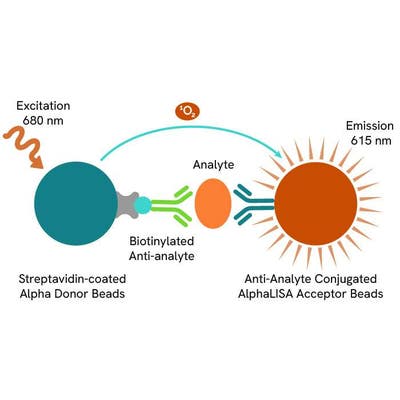

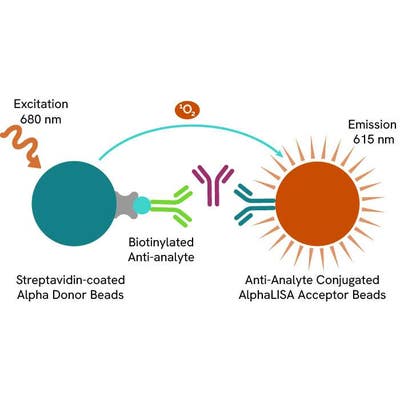 View All
View All
AlphaLISA Porcine IL-12 Detection Kit, 100 Assay Points
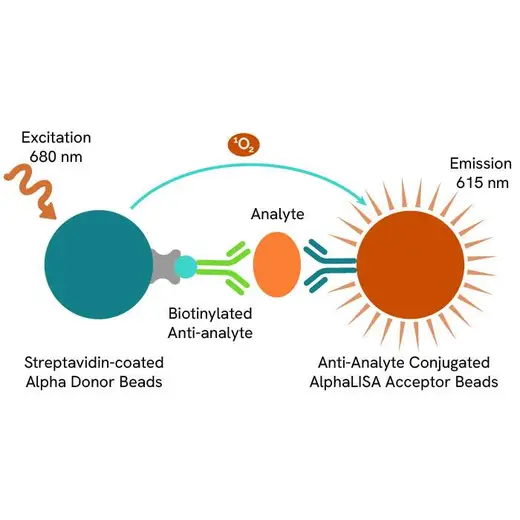

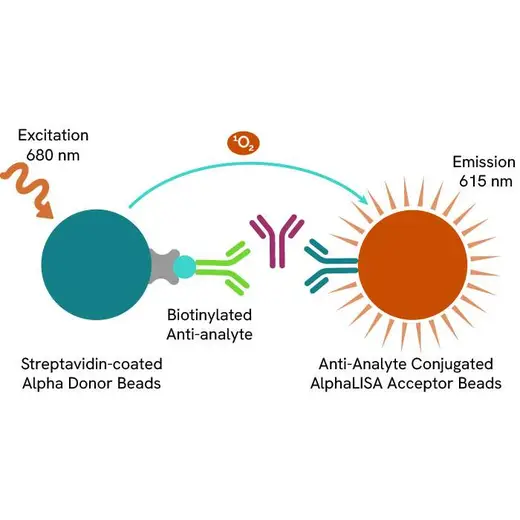




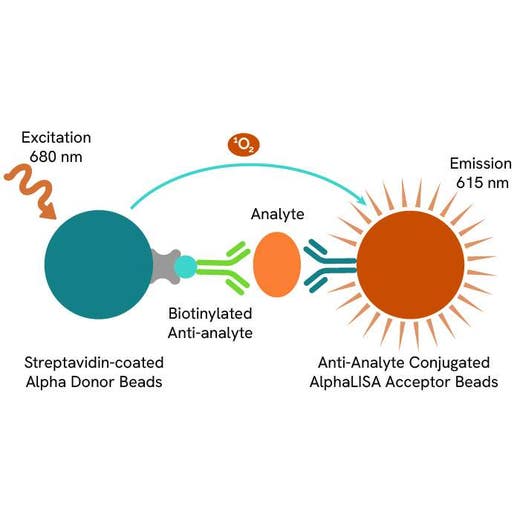

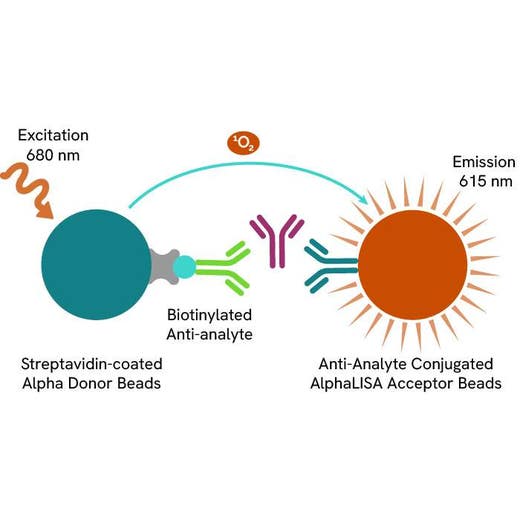




The AlphaLISA™ immunoassay kit for porcine IL-12 enables the quantitative determination of porcine interleukin-12 in serum, buffered solution, and cell culture supernatants using a homogeneous AlphaLISA assay (no wash steps).
| Feature | Specification |
|---|---|
| Application | Protein Quantification |
| Dynamic Range | 5 - 100,000 pg/mL |
| Limit of Detection | 5 pg/mL |
| Limit of Quantification | 16 pg/mL |
| Sample Volume | 10 µL |
The AlphaLISA™ immunoassay kit for porcine IL-12 enables the quantitative determination of porcine interleukin-12 in serum, buffered solution, and cell culture supernatants using a homogeneous AlphaLISA assay (no wash steps).







AlphaLISA Porcine IL-12 Detection Kit, 100 Assay Points







AlphaLISA Porcine IL-12 Detection Kit, 100 Assay Points







Product information
Overview
Formats:
- Our 100 assay point kit allows you to run 100 wells in 96-well format, using a 100 µL reaction volume (10 µL of sample).
- Our 500 assay point kit allows you to run 500 wells in 96-well or 384-well format, using a 50 µL reaction volume (5 µL of sample).
- Our 5,000 assay point kit allows you to run 5,000 wells in 96-well or 384-well format, using a 50 µL reaction volume (5 µL of sample).
Features:
- No-wash steps, no separation steps
- ELISA alternative technology
- Sensitive detection
- Broad sample compatibility
- Small sample volume
- Results in less than 3 hours
- Half the time of an ELISA assay
Interleukin 12 (IL-12) belongs to IL-12 family consisting IL-12, IL-23, IL-27, IL-35. IL-12 is encoded by two separate genes, IL-12A (p35) and IL-12B (p40). The active heterodimer (referred to as p70 or IL-12 p70) and a homodimer of p40 are formed following protein synthesis. In response to antigenic stimulation, IL12 proteins are produced by dendritic cells, macrophages, neutrophils, and B-cells. It is known to stimulate the production of interferon-gamma (IFN-γ) and tumor necrosis factor-alpha (TNF-α) from T cells and natural killer (NK) cells, while reducing IL-4 mediated suppression of IFN-γ. IL12 is thought to be one of the cytokines that plays an essential role in inflammatory diseases such as rheumatoid arthritis, allograft rejection, and atherosclerosis. This kit is designed to detect Interleukin 12 (IL-12) p70 as an active heterodimer in procine serum, plasma, and cell culture supernatants.
AlphaLISA technology allows the detection of molecules of interest in a no-wash, highly sensitive, quantitative assay. In an AlphaLISA assay, a biotinylated anti-analyte antibody binds to the Streptavidin-coated Donor beads while another anti-analyte antibody is conjugated to AlphaLISA Acceptor beads. In the presence of the analyte, the beads come into close proximity. The excitation of the Donor beads causes the release of singlet oxygen molecules that triggers a cascade of energy transfer in the Acceptor beads, resulting in a sharp peak of light emission at 615 nm.
Specifications
| Application |
Protein Quantification
|
|---|---|
| Automation Compatible |
Yes
|
| Brand |
AlphaLISA
|
| Detection Modality |
Alpha
|
| Dynamic Range |
5 - 100,000 pg/mL
|
| Limit of Detection |
5 pg/mL
|
| Limit of Quantification |
16 pg/mL
|
| Product Group |
Kit
|
| Sample Volume |
10 µL
|
| Shipping Conditions |
Shipped in Blue Ice
|
| Target |
IL12
|
| Target Class |
Cytokines
|
| Target Species |
Porcine
|
| Technology |
Alpha
|
| Therapeutic Area |
Inflammation
|
| Unit Size |
100 Assay Points
|
Image gallery






AlphaLISA Porcine IL-12 Detection Kit, 100 Assay Points






AlphaLISA Porcine IL-12 Detection Kit, 100 Assay Points






Video gallery

AlphaLISA Porcine IL-12 Detection Kit, 100 Assay Points

AlphaLISA Porcine IL-12 Detection Kit, 100 Assay Points

Resources
Are you looking for resources, click on the resource type to explore further.
Leptospirosis is an infectious disease caused by Leptospira bacteria, which can spread across different species of mammals...


How can we help you?
We are here to answer your questions.






























